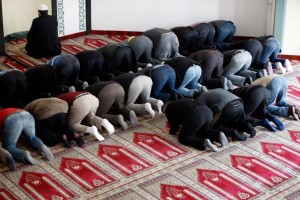Some people have a deep animosity toward immigrants, but I am not one of them. I do not like nor dislike immigrants; for me they are just strangers who live in my country. And my attitude toward them is conditioned by just one simple criteria: if they make my life and my country better- or worse. On the other hand, immigrants who come to my country do not come out of some deep love for the nation or culture. They come for money and for a better life for themselves and their families. So we are even, and nobody owes anything to anyone else- which is, in most cases, the best pattern of any relationship.
Money and a better life are quite an incentive. Those who think immigrants, especially immigrants from Muslim countries, come because they admire Western democracy should take a look at the situation in Germany.
Data taken from: Citizen Times: “Turks in Germany 2012?:
According to the study of the Interior Ministry, in 2009, Germany was home to around 4.3 million Muslims, which equates to a population share of 5.2%. Of them, the largest group consists of just under 2.7 million people of Turkish descent. A recent poll by Information GmbH has investigated what these Turkish immigrants think about Germany and Germans.
Attitudes Toward Germany
Regarding the respondents’ attitudes toward Germany and Germans, at least in terms of the stated desire for integration, 95% of the Turks in Germany find it important to preserve their Turkish culture in Germany, and 87% (2010: 83%) think that Germans ought to be more considerate of the particular circumstances of the Turks. For crying out loud, why in the world should 80 million Germans who created Germany be “more considerate of the particular circumstances” of some 2.7 million Turks?
Islamization, Separation and Devaluation
On the other hand, there are clear trends of separation and Islamization: 62% of Turks in Germany (TiG), or 1.5 times as much as in 2010, would prefer to be together exclusively with Turks. Also an indicator of poor integration motivation is the 46% who said they would leave Germany if they wouldn’t receive aid money in the case of unemployment.
Increasing numbers of Turks want more mosques (55%); among 15- to 29-year-olds, up to 70% want more mosques. Moreover, almost half of the TiG hope that there will be a Muslim majority in Germany soon. Also, the number of those who believe that Islam is the only true religion has increased.
The devaluation of different ways of life has also increased slightly: almost a fifth of the TiG consider atheists to be inferior human beings; this figure is up to 30% among the youngest respondents. Also, anti-Semitism has increased. Additionally, more than half of the respondents think that homosexuality is a disease, and 73% reject it.

And for some strange reason, nobody calls them “religious extremists” as it happens so often with Christians in supposedly Christian European countries. And nobody forbids Muslim holidays, all these “bairams,” ”ramaddans” and “fitrs”- but banning Christmas is OK!
Thirty-nine percent of TiG fell more at home in Turkey and only 15% in Germany. Solely 23% have German citizenship. About half of the TiG want to remain in Germany, a slightly increased proportion consider returning to Turkey.
Education and Employment
In comparison to the German population, the Turks living in Germany perform very poorly in general education: 57% of those surveyed have no high school diploma or only attended a secondary modern school (Hauptschule). In addition, 40% of Turks in Germany have no professional qualifications, which is important for successful participation in working life. Over two-thirds also indicate that they speak better Turkish than German; among women, this figure is almost 75%. Accordingly, only 47% of those surveyed (men: 56%, women: 39%) are fully or partially employed. It means that others sit on welfare, generously paid by native Germans.
Do you think immigrants are good for Germany? Are they good for your country?
By: Y.K. Cherson









